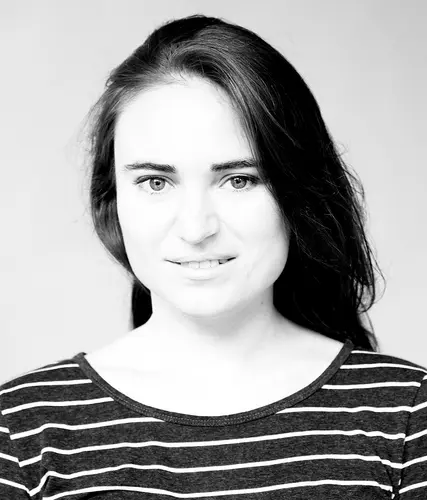GRADUATION INTERVIEW ▼
The multi-informant perspective put to the test. Comparison of external assessments of the social-emotional competence of kindergarten children
AN INTERVIEW WITH CARINA SCHÖNMOSER

:::::::::::::::::::::::::::::::::::::::::::::::::::::::::::::::::::::::::::::::::::::::::::::::::::::
SHORT PROFILE
Name: Carina Schönmoser
Field: Sociology
Dissertation: The multi-informant perspective put to the test. Comparison of external assessments of the social-emotional competence of kindergarten children
:::::::::::::::::::::::::::::::::::::::::::::::::::::::::::::::::::::::::::::::::::::::::::::::::::::
Our doctoral member Carina Schönmoser has successfully completed her dissertation. In her Graduation Interview, she gives insights into the topic and findings of her dissertation, talks about her time at the BAGSS, and shares the next step in her career.
// What drew you to your dissertation topic and what interests you most about it?
C.S.: I was already interested in early childhood education during my bachelor's degree in sociology and political science at FAU. When I came to Bamberg for my Master's degree and first became a student assistant, then a little later a research assistant at the National educational panel study, where I was entrusted with starting cohort 2, I was able to pursue this interest further. The fact that social-emotional skills have a major influence on the development of cognitive skills fascinated me from the very beginning. However, measuring social-emotional competencies from a multi-informant perspective raised many questions, which I then examined from a sociological perspective.
// Can you give us a small sneak peek about the findings of your thesis?
C.S.: Using two data sets (Starting cohort 2 of the National educational panel study and BiKS study), I examined the assessments of various dimensions of social-emotional competencies of 3 to 5 year old children. These were assessed on rating scales by one kindergarten teacher and one parent, respectively. The assessments differed greatly from each other in both data sets. My analyses showed that the kindergarten teachers' assessments varied according to child and family characteristics (sex, social background, language skills), while these correlations were not evident in the parents' assessments. Whether this is due to class-specific behavior of the children or to discrimination by the kindergarten teachers remains to be investigated. A significant correlation between the two assessments of the children's social-emotional skills and their math skills at the end of primary school using NEPS data could not be shown, possibly due to the measurement intervals being too large.
// Do you have any tips for PhD students writing their thesis?
C.S.: Enjoy the journey of writing your thesis.
// What is the next step in your career?
C.S.: After many years at the Leibniz-institut of educational trajectories (LIfBi), I am currently working on an exciting project at Coburg University of Applied Sciences that deals with knowledge transfer. I don't know yet where I'll go after that and whether I'll stay in academia.